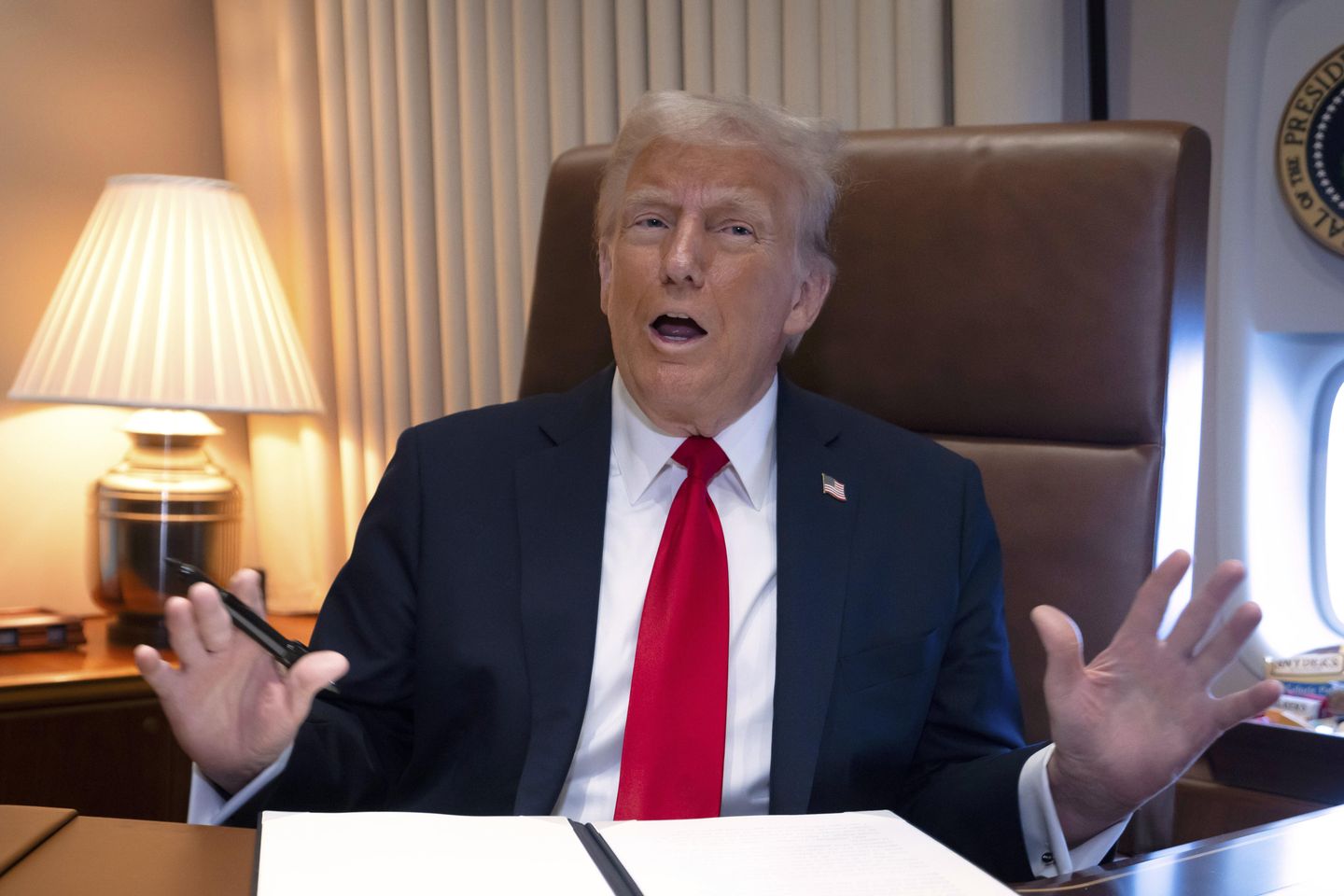
President Trump is minimizing concerns about the economic impact of his fluctuating tariff policies despite stock market turbulence. In a pre-taped Fox News interview, Mr. Trump described the nation as going through a “transition period” where tariffs might continue to increase as part of his trade vision aimed at strengthening the economy and rebalancing trade relationships.
Mr. Trump plans to begin imposing reciprocal tariffs on Canada and Mexico starting April 2, with potential increases afterward. When asked about a possible recession, Mr. Trump avoided a direct prediction, stating, “What we’re doing is building a tremendous foundation for the future.”
Commerce Secretary Howard Lutnick firmly rejected the possibility of a recession, while White House National Economic Council Director Kevin Hasset defended the tariff strategy as an effort to usher in a new era of domestic production. Mr. Hasset pointed to recent job creation numbers as evidence that the economy is moving in the right direction.
Mr. Trump’s tariff policy has evolved rapidly in recent days. After announcing a 25% tariff on Canada and Mexico and promoting it during his congressional address as necessary to protect American jobs, he later created exceptions for auto manufacturers and goods included in the United States-Mexico-Canada trade agreement. He also suggested potential tariffs on Russia if President Vladimir Putin continues military action in Ukraine, and threatened tariffs on Canadian dairy and lumber products.
These rapid policy shifts have created uncertainty on Wall Street and anxiety among business leaders. The Wall Street Journal editorial board has questioned the legality of the tariffs and criticized the president for treating the North American economy as “a personal plaything.”
The tariffs have divided politicians and industry leaders. Sen. Adam Schiff warned that tariffs would increase prices for American families, while United Auto Workers president Shawn Fain expressed support, describing them as “an attempt to stop the bleeding from the hemorrhaging of jobs in America.”
Mr. Trump has particularly targeted Canadian trade practices, criticizing their limits and tariffs on U.S. imports, especially dairy products. Canadian officials attribute their $63 billion trade imbalance with America primarily to heavy Canadian oil exports to the U.S.
Mr. Hasset emphasized that many countries charge higher tariffs than the U.S., suggesting that reciprocal tariffs could pressure countries to lower their fees on American imports.
Read more: Trump stands by tariffs, economic vision after shaky stock market unsettles critics
This article is written with the assistance of generative artificial intelligence based solely on Washington Times original reporting and wire services. For more information, please read our AI policy or contact Ann Wog, Managing Editor for Digital, at awog@washingtontimes.com
The Washington Times AI Ethics Newsroom Committee can be reached at aispotlight@washingtontimes.com.
















